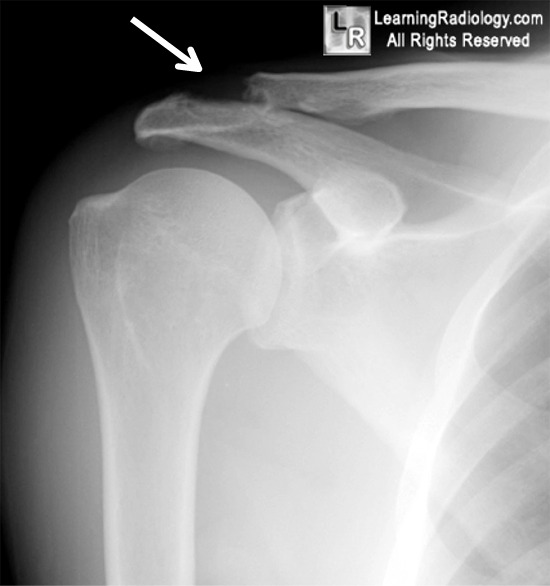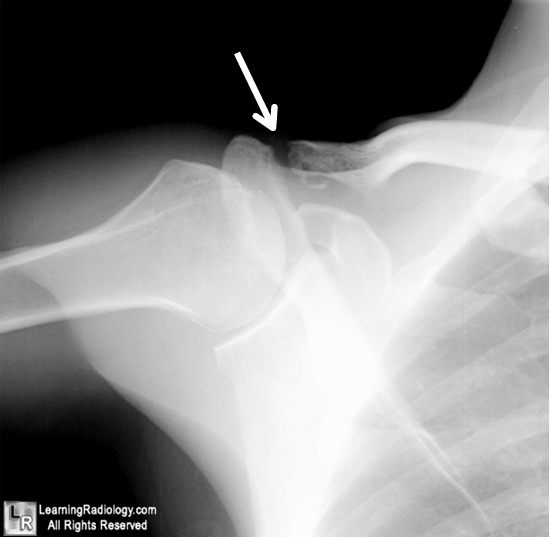Distal Clavicular Osteolysis. There is resorption of the distal clavicle and small cysts in the distal clavicle
in this young weight lifter with pain in this region for several months (white arrows).
en.wikipedia.org/wiki/Bone_resorption Bone resorption is the process by which osteoclasts break down bone and release the minerals, resulting in a transfer of calcium from bone fluid to the blood
For more information, click on the link if you see this icon
For this same photo without the annotations, click here and
here
General Considerations
- Sequela of trauma from contact sports, falls and motor vehicle accidents
- Incidence increased with weight lifting/training
- Other sports include football, swimming
- More often seen in males
- Unilateral
- Atraumatic causes are more common than traumatic
- Continued stress on the joint may play a role in its development
Clinical Findings
- Dull aching pain over AC joint
Imaging Findings
- Diagnosis can usually be made with conventional radiography and history
- Resorption of distal clavicle
- Osteopenia of distal clavicle
- Periarticular swelling
- Periarticular cyst-like erosions
- Periostitis of clavicle
- Bone scan will be positive in distal clavicle
Differential Diagnosis
- Hyperparathyroidism
- Rheumatoid arthritis
- Scleroderma
Treatment
- Non-steroidal anti-inflammatory drugs
- Steroid injections
- Distal clavicle resection
Complications
- Higher incidence in patients with a prior AC separation
- Permanently widened AC joint and persistent pain
Prognosis
- Self-limiting about 1-2 years following modification of activity which caused disease
- Osteolysis may reverse

